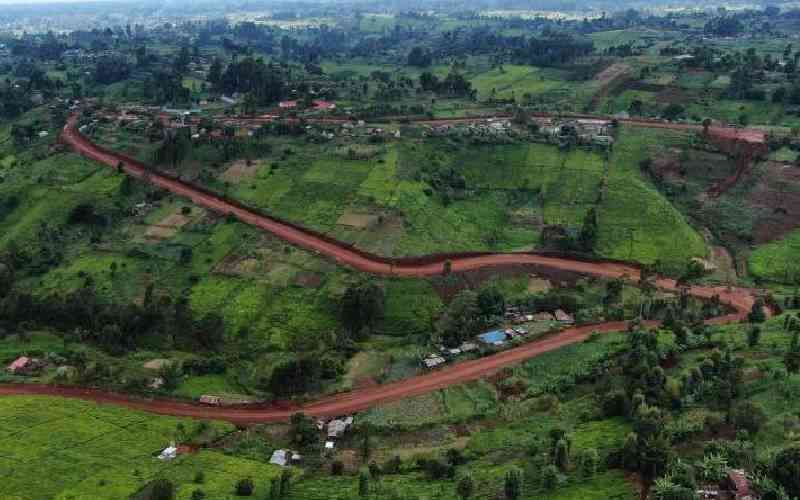
Environment and Lands Court Judge Kossy Bor on Tuesday ordered the government to halt construction of the road until the case filed by three environment conservation groups and lawyer Lempaa Suyianka is heard and determined.
“A conservatory order is issued to preserve the Aberdare National Park and Aberdare forest by stopping the respondents or their agents from continuing the planned construction or any activity from continuing the planned construction or any activity concerning construction of Mau Mau lot four: Thithe-Ndunyu Njeru Road traversing the Aberdare National Park and Aberdare Forest pending inter partes hearing,” ruled Justice Bor.
The case was filed by East Africa Wildlife Society, Kenya Forest Working Group and Africa Centre for Peace and Human Rights against Kenya National Highway Authority (KeNHA), Kenya Water Tower Agency, Norken International Limited and National Environmental Management Authority (Nema).
They also roped in Law Society of Kenya (LSK), National Museums of Kenya, Kenya Wildlife Society (KWS) and Kenya Forest Service (KFS).
The section of the road at the heart of the case is 52 kilometers from Ihithe to Ndunyu Njeru. Initially, Nema was opposed to the construction of the road.
The agency had instead asked KeNHA to redesign the plan or explore alternative routes for the same.
KeNHA had also shelved the idea after failing to get the Environment Impact Assessment (EIA) approvals from KWS, KFS and Nema.
However, Nema and the others made an about turn and gave approvals this year.
In the license, it was indicated that the construction would eat away 75 hectares of bamboo and 14 hectares of montane forest and an equal amount of moorlands.
The destruction of the ecosystem is central to the case.
Lawyers Amos Shihundu, Elizabeth Gitari and Dudley Ochiel told the court that if the road is constructed as planned, it would have deleterious and irreversible environmental, economic, and cultural impact on the Aberdare.
The team led by Ochiel asserted that Nairobi residents would be the hardest hit as the forest is the primary source of water consumed in the city.
At the same time, Justice Bor heard that Aberdare’s eastern and southern slopes feed the Tana and Athi River basins while the north-eastern slopes water the Ewaso Nyiro River basin which supplies the dry areas of Laikipia and Isiolo as it drains into the Lorian Swamp.
Malewa River basin fed by the western side of the range drains into Lake Naivasha.
“The Aberdare is a critical water catchment for millions of people, livestock, and wildlife across Kenya. It supplies 80 per cent of the water Nairobi City County uses through Sasumua and Ndakaini dams and generates 55 per cent of Kenya’s hydroelectric power,” argued Ochiel.
At the same time, he said that the government had failed to consider five alternative routes which would have completed the loop without much environmental harm.
According to the lawyer, the most viable route that the government failed to consider is Kariamu-Ndaragwa which would then avoid Aberdare National Park.
“This road would alter and destroy the Aberdare forever. The road would create deleterious environmental results, cause irreversible damage to a fragile and delicate ecosystem, and violate the Constitution,” the lawyer argued.
He said that Nema did not provide any mitigation measures during construction or give an indication on what would be done to ensure that the forest cover that would be affected would be restored after the construction.
The lawyer asserted that it is unclear how Nema changed heart from the initial stand in 2009.
Ochiel was of the view that the bigger evil in the project would be extinction of many critically endangered plant and animal species including elephants, black rhinos, Mountain Bongos, and the Aberdare Cisticolas.
He said that the only justification given was that those crossing through the route would take one hour more if the road would be constructed in the alternative route.
“For all these reasons, the road threatens the right to a clean and healthy environment and also a threat to the flora and fauna deemed both endemic and endangered within the Aberdare ecosystem,” he said.